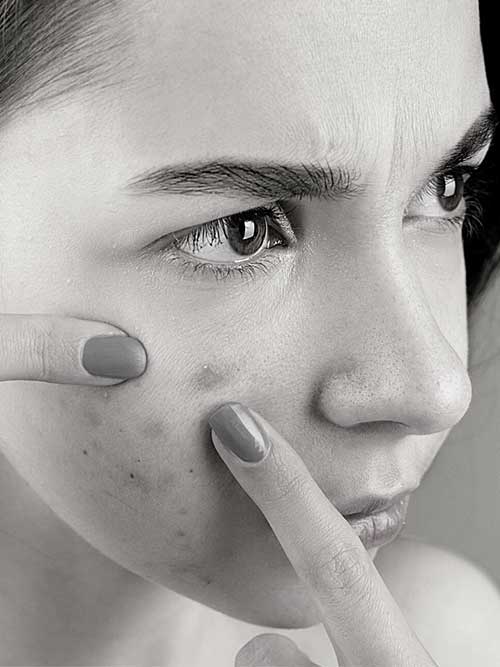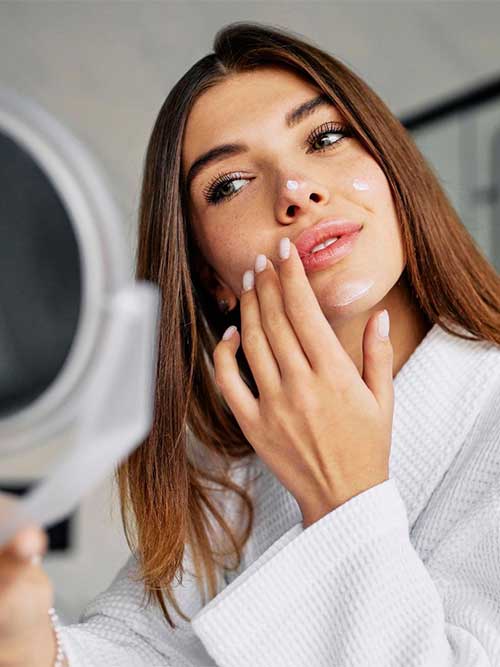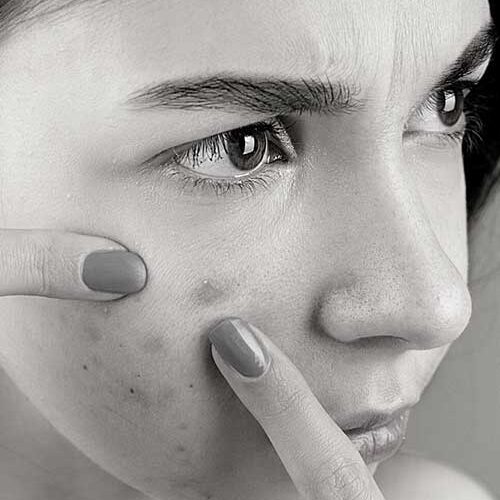Acne breakouts are a skin condition that causes spots and oily skin. It can be embarrassing and reduce self-confidence, even for people who have mild acne symptoms. It is also a leading cause of permanent scarring, particularly for people with darker skin tones.
It is most common for people between the ages of 15 and 24. It’s not clear what causes it, but genetics and hormones may be involved. It can range from blackheads and whiteheads to pustules and cysts. It can be painful and cause red, inflamed areas of skin. It can also leave a darkening of the skin known as post-inflammatory hyperpigmentation. It can even cause nodules, which are large and embedded in the skin, and these can be very difficult to treat.
Fortunately, there are several steps you can take to manage acne breakouts and improve the overall health and appearance of your skin. In this post, we’ll explore some of the most effective strategies for managing acne breakouts.

1. Keep Your Face Clean
Keeping your face clean is an important part of keeping acne under control. Cleanse your facial area at minimum two times per every day (and when you sweat). Use a mild, non-abrasive cleanser and warm water. Avoid scrubbing, as this can irritate the skin and lead to more breakouts. It’s also helpful to use makeup, skincare, and sunscreen products that are labeled “noncomedogenic” or “nonacnegenic,” as these will be less likely to clog pores.
2. Avoid Touching Your Face
Another important step in managing acne breakouts is to avoid touching your face as much as possible. Your hands come into contact with all sorts of bacteria and dirt throughout the day, and touching your face can transfer these impurities onto your skin. This can cause breakouts and blocked pores. So, if you have to contact your face, make sure to clean your hands thoroughly prior to touching it.
3. Consistent Skincare Routine for Manging Acne Breakouts

One of the best ways to manage acne breakouts is to establish a consistent skincare routine. This should include cleansing, moisturizing, and applying any necessary acne treatments. It’s important to choose products that are gentle and non-irritating, as harsh or abrasive products can actually make acne worse. Be sure to look for products with elements like salicylic acid, or benzoyl peroxide. These can aid in removing clogged pores and lessen inflammation.
4. Be Mindful of Your Diet
While there is no single food that causes acne, some studies suggest that certain foods may exacerbate breakouts in some people. These include high-glycemic-index foods like sugary drinks and snacks, as well as dairy products. If you notice that your acne breakouts are worse after consuming these types of foods, you may want to consider adjusting your diet.
5. Manage Stress
Stress can be a factor in the breakouts of acne. When you’re stressed, your body produces hormones like cortisol, which can trigger inflammation and acne. To manage stress, try practicing relaxation techniques like meditation or deep breathing exercises. Regular exercise can also help to reduce stress levels and improve overall health.
6. Get Plenty of Sleep
Finally, getting enough sleep is crucial for managing acne breakouts. Insufficient amount of sleep can result in an increase in stress levels and inflammation and a rash of acne, both of which can cause acne. You should aim for 7 to 9 hours of sleep each night and create a regular schedule for sleep to ensure that you are regulating your internal rhythms.
7. See a Dermatologist

If your acne breakouts are severe or persistent, it may be time to see a dermatologist. They can prescribe stronger topical treatments or oral medications that can help manage acne. They can also offer suggestions on how you can take care of your skin and avoid future breakouts.
To Conclude
Managing acne breakouts can be a challenging task, but it is possible with the right approach. By keeping your skin clean, using topical acne treatments, watching your diet, managing stress, and seeking professional help if needed, you can effectively manage your acne and enjoy clearer, healthier skin. Remember to be patient and consistent in your approach, as it may take several weeks or months to see results.
